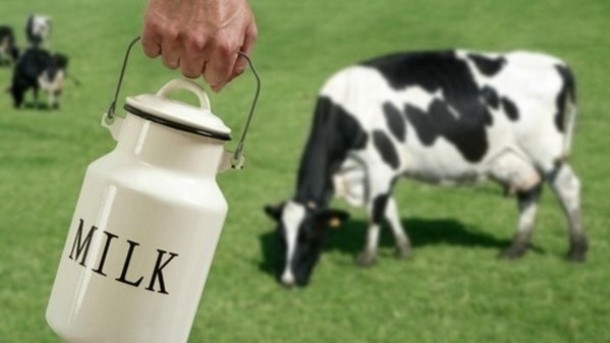Pharmaceuticals, milk, and livestock in for stiffer competition with EVFTA
 |
| After the EVFTA, more dairy products from Europe will be imported to Vietnam, creating more competition for local manufacturers |
On February 12, the European Parliament ratified the EU-Vietnam Free Trade Agreement (EVFTA) and the EU-Vietnam Investment Protection Agreement (EVIPA). The two agreements are expected to boost trade and investment between Vietnam and the EU in the next decade and facilitate Vietnam to further integrate into the global supply chain.
The reduction of tariffs on goods imported from the EU will increase the opportunities of Vietnamese businesses to access high-quality machines, equipment, and new technologies from Europe at lower prices. This will help Vietnamese businesses improve labour productivity as well as increase high-tech content, thereby opening opportunities for Vietnamese enterprises to integrate more deeply into the global value chain.
However, the penetration of European goods into Vietnam will create competitive pressure forcing domestic manufacturers to reduce production costs while improving product quality. Finally, Vietnamese consumers will be the biggest beneficiaries.
Accordingly, around half of EU pharmaceutical exports will be duty-free immediately, and the rest after seven years. The reduction of import duties on pharmaceutical products from the EU will increase the pressure on domestic manufacturers.
Frozen pork meat will also be duty-free after seven years, dairy products after five years, and processed food after seven years, and chicken after 10 years. Currently the EU’s livestock products exported to Vietnam are subject to tariffs of 10-40 per cent. The reduction of import tariff on livestock products from the EU will improve their penetration of the Vietnamese market and pose significant competition to domestic products.
Some European countries are famous in dairy products. The reduction of duties on milk products imported from the EU will increase the competitive pressure on domestic milk manufacturers. However, the EVFTA also opens up opportunities for Vietnamese dairy companies to gain more access to production technology and milk ingredients from Europe, which are highly appreciated for quality and food safety, thereby contributing to improving the quality of domestic dairy products.
It is estimated that Vietnam’s export value to the EU could jump by about 20 per cent in 2020, 42.7 per cent in 2025, and 44.4 per cent in 2030 compared to the scenario without the EVFTA. At the same time, Vietnam’s imports from the EU would also increase, but at a lower pace.
Accordingly, Vietnam commits to abolishing 48.5 per cent of tariffs lines on goods exported from the EU immediately after EVFTA takes effect, equivalent to 64.5 per cent of total import value from the EU. Within 10 years of the EVFTA in effect, Vietnam commits to abolishing over 98.3 per cent of the tariff lines on EU exports, equivalent to 99.8 per cent of total import value from the EU.
Currently, the EU is Vietnam’s fourth-largest supplier of goods. EU exports to Vietnam mainly include machinery, chemicals, and transportation equipment, which are essential for the transformation and modernisation of the Vietnamese economy.
What the stars mean:
★ Poor ★ ★ Promising ★★★ Good ★★★★ Very good ★★★★★ Exceptional
 Tag:
Tag:
Themes: EVFTA & EVIPA
Related Contents
Latest News
More News
- VNPAY and NAPAS deepen cooperation on digital payments (February 11, 2026 | 18:21)
- Vietnam financial markets on the rise amid tailwinds (February 11, 2026 | 11:41)
- New tax incentives to benefit startups and SMEs (February 09, 2026 | 17:27)
- VIFC launches aviation finance hub to tap regional market growth (February 06, 2026 | 13:27)
- Vietnam records solid FDI performance in January (February 05, 2026 | 17:11)
- Manufacturing growth remains solid in early 2026 (February 02, 2026 | 15:28)
- EU and Vietnam elevate relations to a comprehensive strategic partnership (January 29, 2026 | 15:22)
- Vietnam to lead trade growth in ASEAN (January 29, 2026 | 15:08)
- Japanese business outlook in Vietnam turns more optimistic (January 28, 2026 | 09:54)
- Foreign leaders extend congratulations to Party General Secretary To Lam (January 25, 2026 | 10:01)






















 Mobile Version
Mobile Version